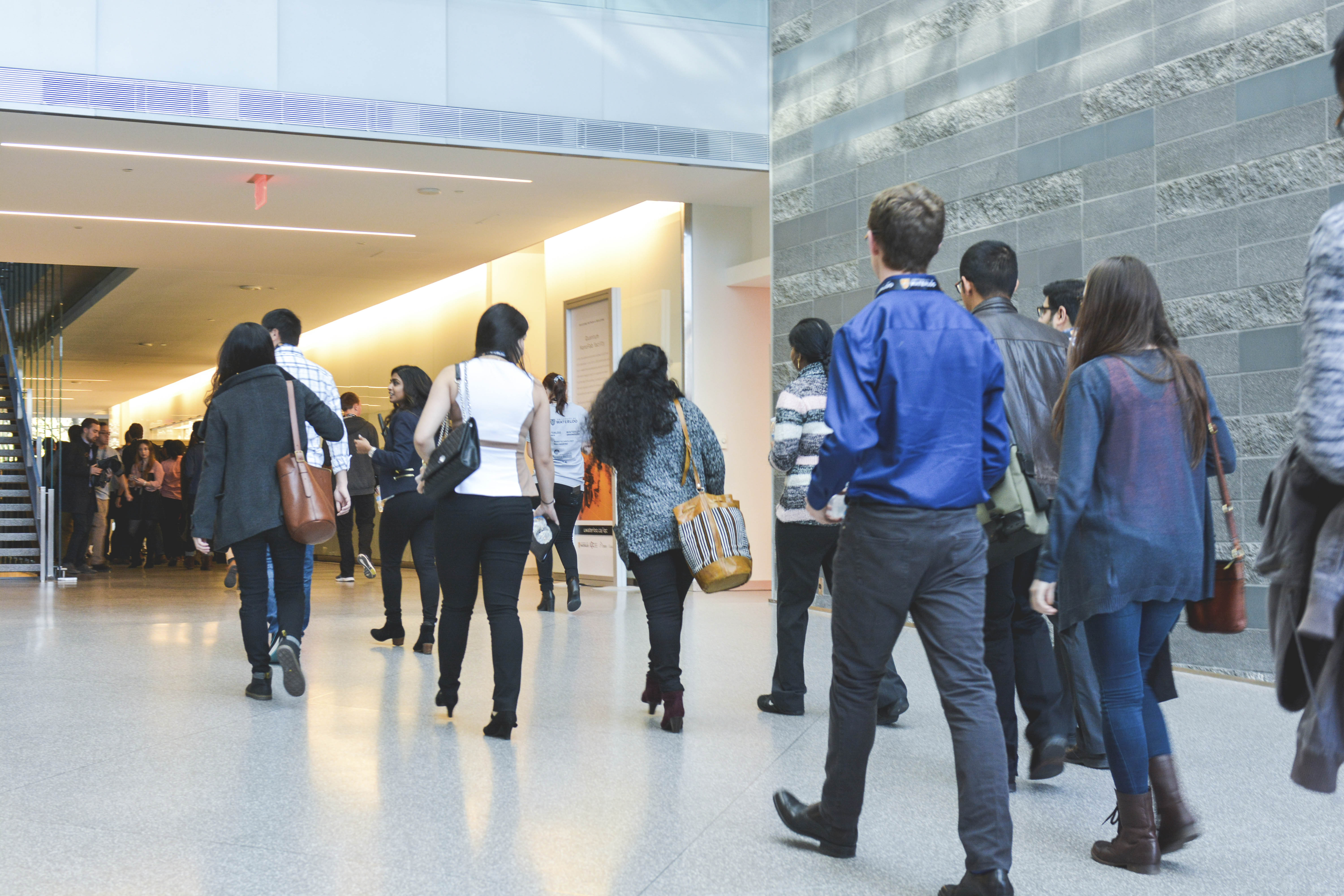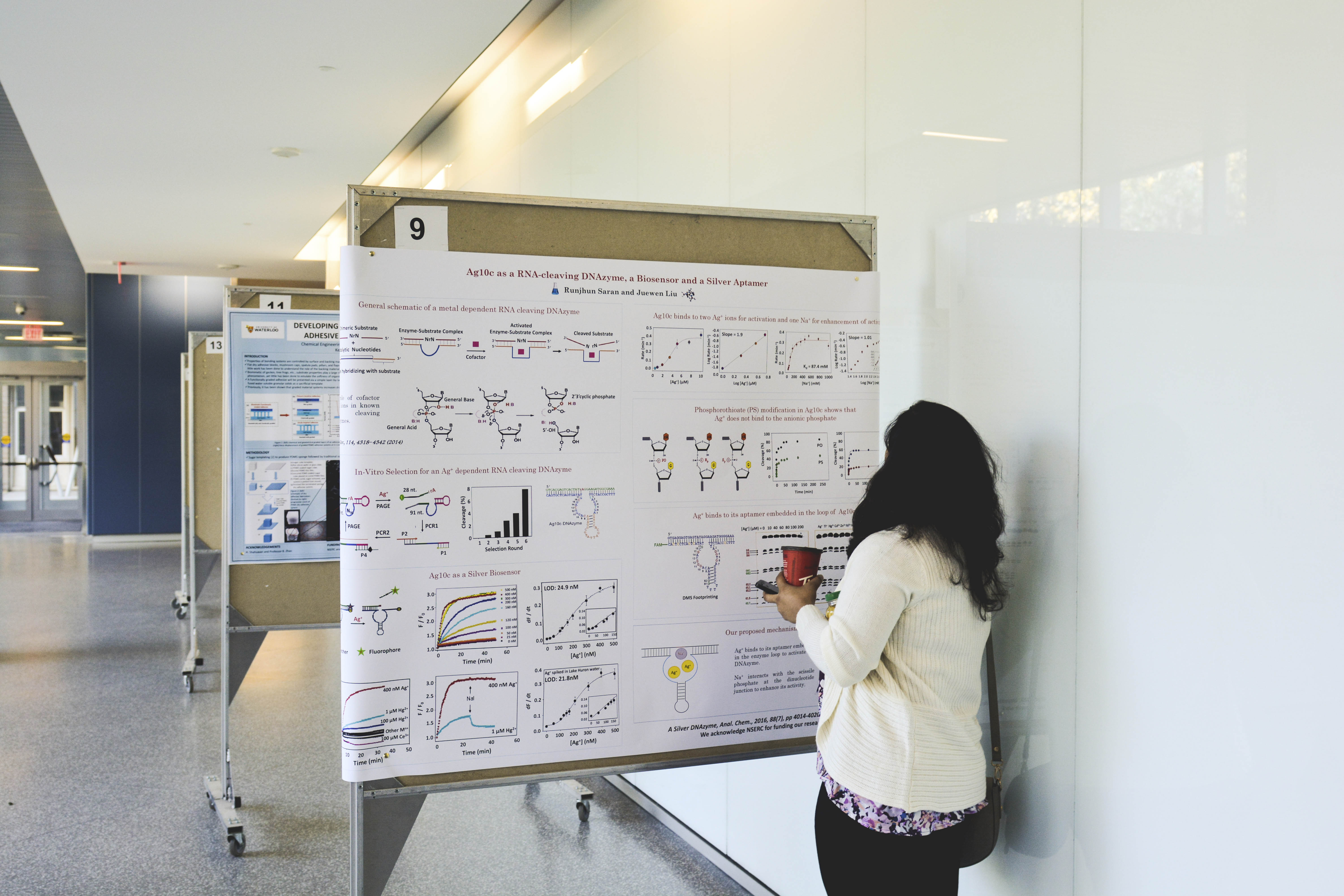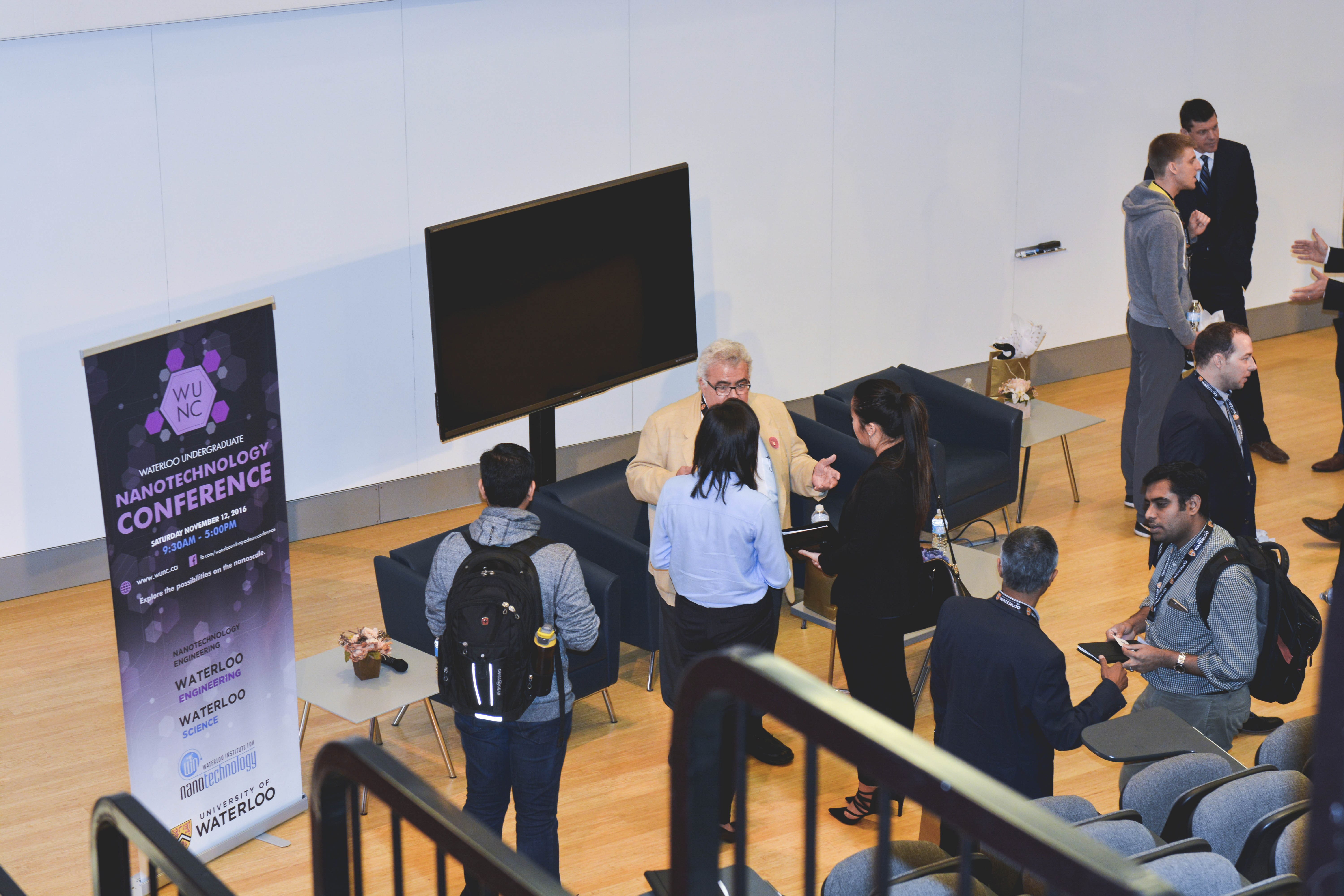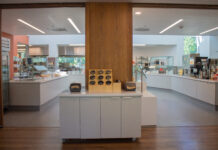
Students from Canada and elsewhere were welcomed to the QNC for the Waterloo Undergraduate Nanotechnology Conference (WUNC) on Nov. 12.
Participants got to show off their nanotech-themed posters, listen to guest speakers, and connect with fellow scientists and students.
Entries for the poster competition portion of the event were set up in the lobby of the Quantum Centre for visitors and fellow students to browse and ask questions. Universities from all over the globe were represented including Cambridge, Harvard, MIT, McMaster, and, of course, plenty of entries from UW.

Poster topics ranged from using nanotechnology for delivering cancer medication to 3-D printing and etching, as well as fodder for the science fiction lover like nanorobotics and biosensors for use inside the human bodies. This conference was not just to show off all the talent that is growing in the nanotech world, but to also highlight all the facets of our lives in which we can use nanotech to our benefit.
A panel of guest speakers presented at WUNC included academic and industry experts. By far the most inspiring speaker was Dr. Ian Burgess from the University of Saskatchewan, whose talking points were focused on encouraging young scientists and startups.
“Barriers to entry [to making a startup] have never been lower than they are today … if you want to code in your basement, you can,” encouraged Burgess. “It has never been as easy as it is now for young people to be risky. Go for it and don’t be afraid.”
One audience member expressed concern about feeling like an “imposter” in the tech world, a feeling that many audience members echoed. Burgess offered further encouragement: “Everyone feels like an imposter. Thrive on it. Aim to be an imposter for the rest of your life.”
Burgess went on to explain what he meant: that risks are never taken if people are constantly following the status quo, if they are afraid to stand out. The bolstering statements garnered a huge round of applause from students and others in the audience.
Burgess concluded his rousing talk by reminding students about the danger of complacency in the academic setting. “You really need to hear that you’re an idiot … I did not start to grow and learn until I left university and people started telling me I was an idiot.”
The crowd laughed at this sentiment but it rang true — many students don’t have their confidence challenged enough in school to survive in the post-university world. Heads nodded in agreement and the moderator of the panel decided to end the talks on this stirring note.
After the talks, visiting students and scientists were able to browse the undergraduate posters and enjoy a cup of Zoup soup. The sounds of networking filled the QNC as people from around the globe mingled and asked each other questions about their projects.
One visitor that came to enjoy the scientific scenery was not even a student or faculty member, just an interested citizen. Mackenzie Westelaken is a Laurier grad who now works in software development. He decided to visit the conference to see what lies ahead in the future for nanotechnology. “I love science of all types and conferences like these are where I can see what new tech will be available in the next decade or so,” Westelaken said. “I like talking with the students who did the posters because they are so excited and willing to explain anything to you.”
Westelaken continued, “It’s so much more informative and entertaining than a science magazine or publication. Plus, free soup!”

The conference concluded with group discussions and a lecture series from successful graduate students in the field of nanotechnology. Students and visitors left the day-long conference feeling inspired by speakers, excited for future developments in technology that will assist in everyday life, and of course with some excellent swag — a leather, printed notepad in which to record every nano thought.
Future WUNC conferences at UW will continue to attract international attention and attendees. With innovative student ideas and a spirit of sharing ideas and coming together as a scientific community, UW will likely be a nanotech haven for years to come.





























